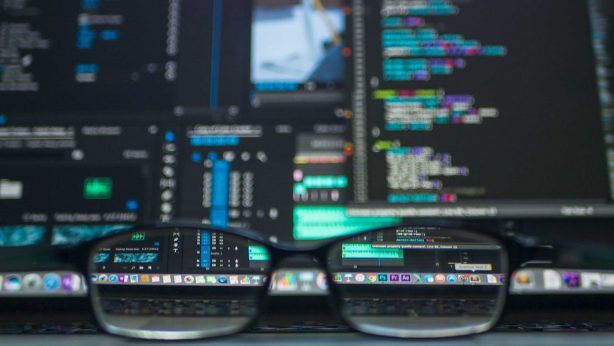Help for Washington DC Inventors
Washington DC As Innovation Hub
Washington DC is one of the world’s hottest tech hubs. An educated and talented workforce and a booming economy have made this city a destination for entrepreneurs.
The DC government is making it easier for new startups to thrive by supporting a number of initiatives, including Pathways to Inclusion. This initiative aims to create 5,000 new tech jobs for underrepresented workers and 500 new tech businesses by underrepresented entrepreneurs.
Top Industry

The Washington DC economy is anchored around the federal government and military agencies, but its business scene has branched out into rich ecosystems in and around the city. The area’s diverse businesses include telecommunications, information and computer firms; construction and tourism.
The top industry in the area is Information and Communication Technology (ICT), which is home to some of the nation’s most innovative companies. The sector’s growth is fueled by venture capitalists, angels, incubators and workspaces, which encourage rapid prototyping and support startups.
This thriving industry is also a key contributor to the local economy. In fact, it accounts for 10.7% of the workforce and leads the country in net job growth.
To keep the innovation soaring in the area, the city is working hard to create an inclusive tech ecosystem for all residents. This goal was the driving force behind the formation of the Innovation & Technology Inclusion Council and the development of a report on a vision for a more inclusive tech economy.
With an ever-shifting business terrain, it is crucial that cities provide opportunities for professionals to develop their skills in a variety of fields. The District has made this a priority and now offers professional and technical programs in a number of different sectors.
The top industry in the area is Information and Communications Technology (ICT), which is home to the most innovative companies in the world. The sector’s growth is fueled in part by a diverse workforce that includes many employees with bachelor’s degrees.
Top Inventors
Washington DC is widely regarded as an innovation hub, and the district is home to many world-class inventors. These individuals have developed products that have changed the way we live and work.
Thomas Edison, for instance, invented the phonograph and other inventions that are now used around the world. He also patented a light bulb and the telephone.
Another well-known inventor is Nikola Tesla. He is credited with many innovative inventions, including the fluorescent light, the induction motor and the Tesla coil.
One of his most important inventions was the alternating current (AC) electrical supply system. He also designed the first magnetic field generator.
During his time at NDSU, Bridgelall developed an audiometer that could detect hearing problems. He has also patented other gadgets such as a metal detector and a system for reading punch cards.
The National Inventors Hall of Fame inducted 27 innovators this year, and three have ties to North Carolina State University. These include the horticulturalist Sylvia Blankenship and the late biochemist Edward Sisler.
These two scientists were able to identify a compound that extended the freshness and storage life of fruits, vegetables and cut floral products. Their research has helped save lives and reduce waste.
They are now being recognized for their work in the National Inventors Hall of Fame, and will receive lifetime membership.
This past year has seen a new crop of entrepreneurs, funders and lobbyists rethinking the rules for tech competition. They are working behind the scenes to re-envision the way American government protects small business. Some are trying to force a conversation about how the country’s big players are bullying the rest of us, while others are working to create a more equitable and inclusive tech pipeline.
Inventor Assistance Center
Inventors need support at every stage of the development of their ideas, and the inventor assistance center in Washington DC can help. Staffed by former supervisory patent examiners, experienced primary patent examiners, various intellectual property specialists and attorneys, the center helps inventors with pre-examination and post-examination processing of their inventions.
The center also serves as a hub for the UNC innovation ecosystem. With a full range of services, space and programming, it supports faculty and students who want to commercialize their intellectual property or launch a spin-off company.
In addition to supporting researchers, the University’s innovation hub connects academic-industry collaborations with corporate leaders and other community stakeholders. It also fosters connections between the research-and-development divisions of large corporations, and between faculty, students and alumni seeking to explore innovative commercial pathways.
As part of the University’s Carolina Economic Development Strategy, the innovation hub will serve as a magnet for those seeking the inventive research and entrepreneurial vibrancy of UNC-Chapel Hill, and connections to the community partners and businesses that are coming to town. This effort is led by Innovate Carolina and two town-gown committees comprised of University, town and community leaders.
According to the CHIPS and Science Act, federal funds should be used to establish regional “Innovation Hubs” in geographic areas that are lagging or undershooting their economic potential. The policy is designed to promote innovation and increase the U.S. output of translational research, which converts basic scientific findings into industrial applications.
The research indicates that regions with high concentrations of STEM graduates, and those with high rates of patent authorship, are positioned to be a top candidate for regional innovation hubs. This is because these areas typically have access to a labor force of workers who know how to turn ideas into products, as well as people with knowledge about the intellectual property space.
Incubators in the Area
The District is home to a number of incubators that support entrepreneurs in their pursuit of business success. They offer a collaborative environment, a professional network and savvy mentors to help startups develop their ideas.
There are many different types of incubators, but they all have one thing in common: a focus on innovation and entrepreneurial growth. Some of them specialize in fostering commercialization of technologies, while others are focused on increasing employment in economically disadvantaged communities.
In addition to a physical space, some incubators also offer online resources and networks that help start-up firms develop their businesses and grow. These programs provide entrepreneurs with an environment to share ideas, gain access to key business support services and test-drive their business plans.
Some incubators are designed to foster a particular kind of innovation, such as the Future of Longevity Accelerator that focuses on solutions that improve the lives of older adults and their caretakers. They provide support in areas such as caregiver support, aging in place, health and social engagement, financial wellness, and preventive healthcare.
Others are specialized in particular industries, such as the Food Innovation Hub that provides space and support to food entrepreneurs. They also provide educational and networking opportunities for entrepreneurs who want to learn more about the industry and develop new skills.
There are also a few incubators that offer more of a community atmosphere, such as the Inclusive Innovation Incubator in Washington DC, which is designed to promote diversity in the technology industry. The facility provides space for small businesses, non-profits and various types of entrepreneurs to access workstations, offices and classrooms at a rate that ranges from $40 to $600 per month.
SBDC in the Area
The DC SBDC is a free, confidential resource for small businesses. They provide one-on-one business consulting and training to help entrepreneurs start, grow and sustain their companies.
These services are staffed by professional and volunteer individuals from a variety of sources, including local colleges, universities and trade schools. Some of these people are paid consultants and some are retired executives, whose expertise can be valuable to small business owners.
Each state has a lead organization that sponsors the SBDC program and coordinates its operations. The program is a cooperative effort of the private sector, local educational organizations and the SBA.
The SBA provides 50 percent or less of the operating funds for each state SBDC; other sponsors contribute additional funds. These sponsors include the state legislatures, private sector foundations and grants, state and local chambers of commerce, state-chartered economic development corporations, public and private universities, vocational and technical schools, community colleges, and others.
There are 62 lead centers and more than 900 service locations throughout the country. Each center develops services in cooperation with local SBA district offices to ensure statewide coordination.
Each center has a director and staff members. These personnel are recruited from colleges and universities, trade associations, the banking community and other sources.
In addition, qualified part-time and full-time volunteers are available to serve as counselors and provide mentoring. These volunteers come from a variety of sources and are trained to provide personalized counseling and assistance to small business clients.
The DC SBDC is a unique place for collaboration among business, education and government to help innovators create jobs and strengthen the economy. It’s designed to be a place where the community comes together and shares ideas, both formally and informally.


